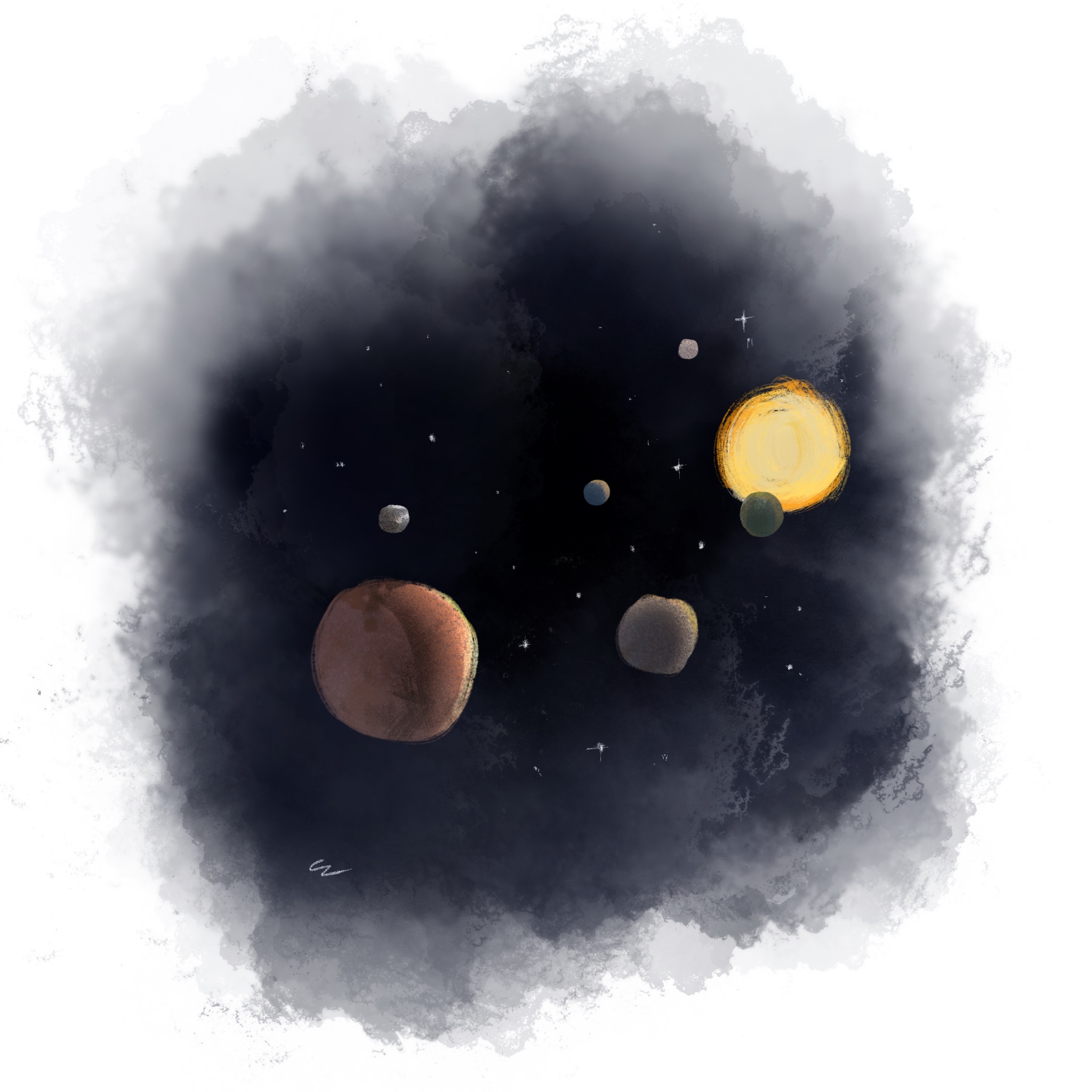
During my first two months at Yale, I’ve learned how to be an indulgent skeptic.
The Thursday before Family Weekend, I received an email advertising an 11-hour-long teach-in about UFOs, to which I responded with immediate incredulity. I wasn’t quite sure that “free exchange of ideas surrounding a challenging subject” could apply to government cover-ups of UFOs, a conspiracy theory seemingly on par with the flat Earth.
I decided to reach out to Sydney Morrison ’25, the leader of the Yale Student UFO Society, or YSUS, to find out what could lead a Yale student to believe that little green men in flying saucers were anything but pure science fiction. After a few back-and-forth emails, she explained her reasoning over lunch last Monday.
Sydney’s story with ufology, the study of UFOs, began during her time away from Yale after her sophomore year. Throughout her childhood and teenage years, her idea of UFOs was much like mine: “potentially some weird spiritual thing, like a semi-religious phenomenon.” But one night, while hanging out with a friend in a Washington park, they turned around simultaneously to see a large object with blinking lights in the sky. Unbothered at first, they then encountered an 8-foot-tall bulky humanoid object with two deer-like eyes, casually strolling around and absorbing all visible light entering its body. Sydney said that they got within two feet of the alien, which continued to stomp around and followed them back to their car.
Naturally, this experience was “pretty shaking,” and Sydney started YSUS her next semester back at Yale to create a space for UFO believers — the only such space in the Ivy League. The club’s main goal is to consolidate and present knowledge on UFO sightings.
Convincing those in the Yale community is more of a secondary objective. Sydney explained that when talking about her experience to people outside the ufology community, she always begins with “I know this sounds crazy” or “I wouldn’t have believed it myself,” but it’s often unsuccessful; she’s mostly given up on convincing people to believe.
“There’s such pervasive stigma that associates UFOs with mental illness,” she told me. “It’s scary when you do try to take [beliefs about UFOs] further into the media and the public.”
I felt sympathetic to her cause. If UFOs were to exist, I — and most of the world — would be virtually clueless, having been deaf to all those who claimed to have seen evidence. Sydney often wishes she hadn’t had her sighting — “it’s kind of like the Matrix, where you can’t go back after you’ve seen something like that,” she said. Personally, I’d rather live my life unaware of any alien existence — I can’t imagine being so utterly sure of a truth that my family and friends would never accept.
Curious about what led other students to join the club — to voluntarily take the red pill — I talked to Lorenzo Chamberlin ’28, YSUS’s newest officer. He told me that he saw a poster advertising YSUS on the way to class one day and was immediately drawn to it. He’s never had an experience with UFOs, though he would like to, and was enthusiastic about the club’s efforts to find “ways to have those experiences.” He quoted Sherlock Holmes to summarize his reason for joining: “once you’ve eliminated the impossible, whatever remains, however improbable, must be the truth.”
It turns out that Lorenzo wrote the original teach-in email that piqued my curiosity. Rereading it after our chat, I realized that his description of the event’s purpose — raising awareness for “wider epistemological challenges to accepted boundaries of scholarship and civic activism” — was not a half-baked attempt at intellectualizing a joke but a genuine reflection on how deep our assumptions lie.
Over the course of our lunch, Sydney presented a logical, well-thought-out argument. By the time she brought up postcolonialism and ontology, it was clear that she’d spent hundreds, if not thousands, of hours researching ufology.
We talked for around an hour, but most people don’t devote that much time to understanding a claim viewed as fundamentally absurd. It’s so easy to just dismiss someone as crazy when that’s what the rest of the world thinks.
In my philosophy and astronomy courses, I’ve learned about dozens of breakthroughs that were met with universal skepticism when they were first made. Ideas like philosophical questioning, the heliocentric theory and special relativity were incredibly controversial when proposed because they disrupted beliefs that felt safe and secure. Socrates, Galileo and Einstein — some of the most important contributors to human knowledge — were all shunned for their “radical” and “preposterous” findings.
So maybe — however unlikely — UFOs are real and Sydney is the next Einstein. I’m not quite convinced, but I’ve learned to at least give everyone the benefit of the doubt. Nothing is for certain, and so to make a leap into the unknown, to challenge centuries of knowledge and billions of people, should be seen not as ignorance but bravery.







